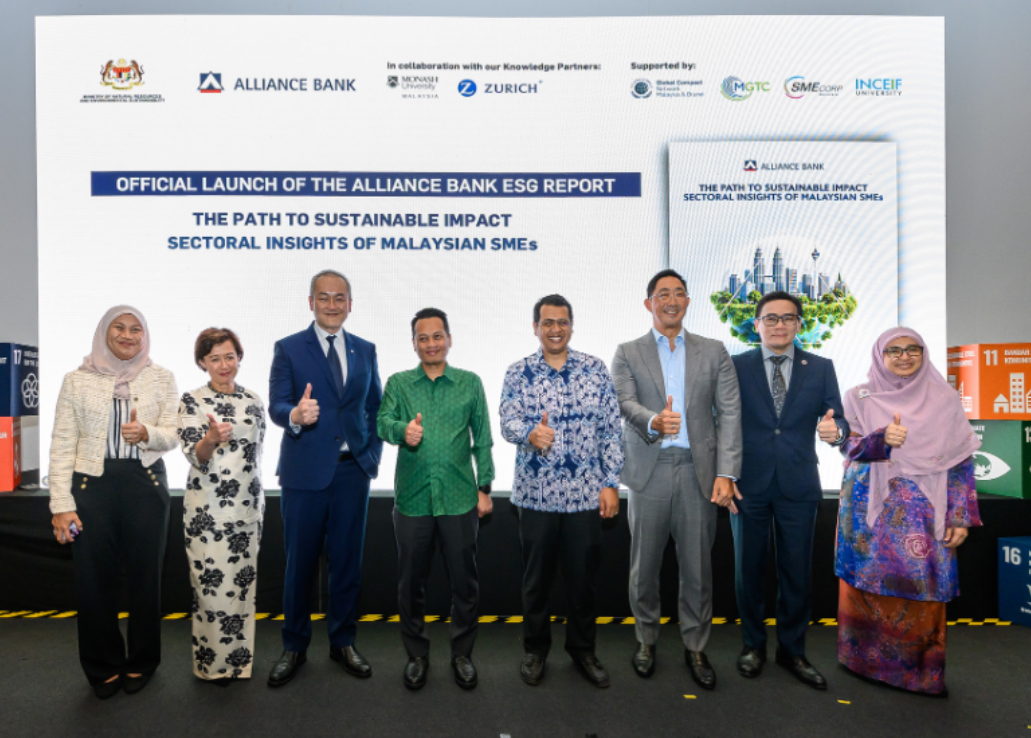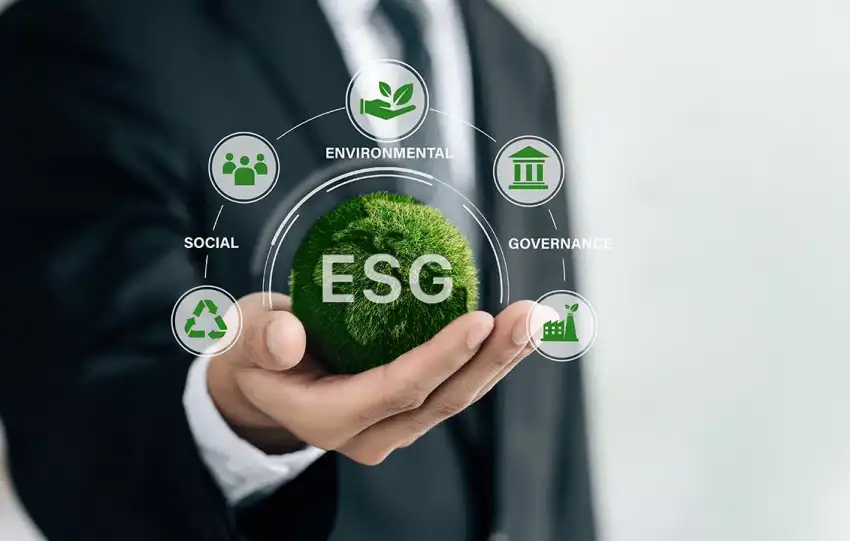March 2 – Sustainability is no longer an option but a necessity for businesses aiming to thrive in today’s economy. Recognizing the urgency of environmental, social, and governance (ESG) adoption, Monash University Malaysia has launched the ESG 2.0 Report, a comprehensive study examining the current ESG landscape in Malaysia.
The report highlights the progress made since the ESG 1.0 Report, identifying key challenges, opportunities, and strategic solutions for businesses, particularly Small and Medium Enterprises (SMEs), to integrate ESG principles effectively. With global regulations tightening and investors demanding greater transparency, this report serves as a roadmap for businesses striving to stay competitive while meeting sustainability goals.
The official launch of the report was accompanied by a high-profile event featuring industry experts, policymakers, business leaders, and academics, who shared their insights on the evolving ESG landscape and the way forward for Malaysian enterprises.
Key Highlights from the ESG 2.0 Report
1. Sector-Specific ESG Progress
The report focuses on four key industries in Malaysia:
- Services – This sector has made substantial progress in ESG adoption, especially in financial services and tourism, where sustainable business practices are increasingly prioritized.
- Manufacturing – While many companies have begun implementing green initiatives, high costs and compliance complexities remain significant challenges.
- Construction – Despite an increased focus on green buildings and energy efficiency, many firms struggle with the financial feasibility of sustainability transitions.
- Agriculture – ESG adoption in this sector is relatively slow due to resource limitations and lack of awareness. However, sustainable farming initiatives and renewable energy integration are on the rise.
2. ESG Awareness and Adoption Among SMEs
A key finding of the report is the growing awareness of ESG principles among SMEs, a significant improvement from previous years. However, despite this awareness, implementation remains low due to limited financial resources, knowledge gaps, and a lack of skilled personnel.
- 82% of SMEs acknowledge the importance of ESG but struggle with execution.
- Only 34% have formal ESG strategies in place.
- Less than 20% actively measure their carbon footprint or social impact.
3. Key Challenges in ESG Compliance
The report highlights several common challenges faced by Malaysian businesses in ESG adoption:
- Cost Barriers – Many SMEs find ESG initiatives expensive and lack access to green financing.
- Regulatory Uncertainty – Some businesses struggle to keep up with changing ESG reporting standards and government policies.
- Talent and Expertise Shortage – There is a lack of ESG specialists within organizations, making implementation difficult.
4. Strategic Roadmap for ESG Success
The ESG 2.0 Report provides clear strategies to help businesses integrate sustainability into their operations:
- Green Financing Solutions – Encouraging businesses to leverage government incentives, sustainable bonds, and ESG-focused investment funds.
- Regulatory Alignment – Assisting companies in navigating Malaysia’s ESG regulations and international compliance standards.
- Digital Transformation – Promoting the use of AI, data analytics, and automation to track ESG performance efficiently.
- Stakeholder Engagement – Urging companies to collaborate with investors, policymakers, and academia for ESG-driven innovation.
5. The Role of Collaboration in Advancing ESG
The event highlighted the importance of partnerships between businesses, financial institutions, government bodies, and academic institutions to accelerate ESG adoption.
Key discussions included:
- The role of banks in promoting sustainable finance by offering incentives for ESG-compliant businesses.
- How public-private partnerships can create scalable solutions for climate resilience and carbon reduction.
- The need for better ESG education to equip future business leaders with sustainability knowledge.
Why This Report Matters
With Malaysia aiming to become a regional ESG leader, businesses that fail to adapt will face increasing scrutiny from investors, consumers, and regulatory bodies. The ESG 2.0 Report plays a critical role in:
✅ Helping businesses future-proof their operations by aligning with global ESG standards.
✅ Encouraging sustainable investments that contribute to long-term business resilience.
✅ Providing a benchmark for policymakers to develop effective ESG regulations.
The Road Ahead: Shaping a Sustainable Future
As ESG momentum grows, businesses must move beyond compliance and embed sustainability into their core strategies. With the ESG 2.0 Report as a guiding tool, Malaysian businesses have an opportunity to transform their operations, attract green investments, and contribute to a sustainable economy.
This report is not just a study—it is a call to action for businesses, investors, and policymakers to work together in creating a greener, more socially responsible Malaysia.
🔗 Read the full ESG 2.0 Report here:
https://www.monash.edu.my/business/News-and-Events/articles/2025/lighting-the-path-to-sustainable-impact-esg-2.0-report




